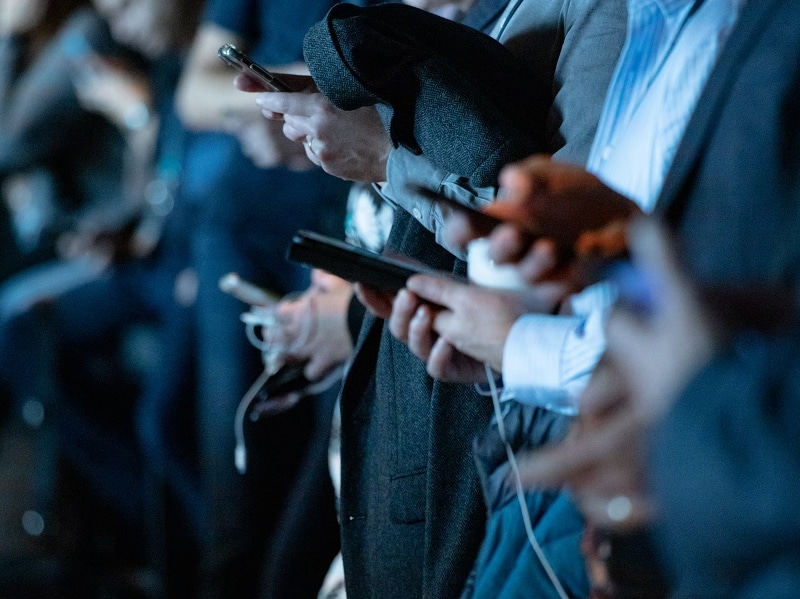How many times a day do you check your phone? If the answer is too often to even count, the good news is that you’re a normal human being from the 21st century. The bad news is that you might be spending your days attached to a screen while your real-life passes by. It’s not your fault.
In this increasingly digital age, it’s practically impossible to live a life completely detached from the online world. With the rise of social media and the recent unprecedented surge in remote work, a huge portion of our lives requires us to be ‘plugged in.’ Despite how tempting it is to check your phone as soon as it buzzes or put in extra hours to get ahead at work, it’s important to unplug once in a while. As amazing and essential as technology is, you have an entire life that exists outside of it. Sometimes, you have to unplug to fully experience it.
In this article, I’ll explore why it’s so difficult to unplug in this modern era, the dangers of being too attached to screens, and tips on how to unplug.
Why it’s so hard to unplug
If you’ve ever forgotten your phone at home, you probably know how disorienting and unnatural it feels to accidentally unplug for a few hours.
Research shows that ‘nomophobia’ or the fear of being disconnected from our mobile phones causes most people anxiety. The anxiety-inducing feeling of being without your phone seems to be a universal experience among modern-day humans.
Similarly, it’s common for people to subconsciously open social media apps and mindlessly scroll for hours. As a social species, our brains are wired to seek out positive social stimuli.
Social media app developers understand this better than anyone and purposely design apps to be addictive. A study found that the dopamine we receive from someone retweeting a tweet or liking a social media post activates the same reward circuits in our brain as money, delicious food, and psychostimulant drugs.
In contrast, some people struggle to unplug because their success depends on constantly being plugged in. Entrepreneurs, digital nomads, and remote workers sometimes find their work seeping into other aspects of their lives.
The dangers of being constantly plugged in
The pandemic forced an unprecedented number of people to work from home. For many, it was a tough adjustment. It’s hard to separate your work from your home life especially when they both occur in the same environment.
A study of remote workers during the pandemic discovered that a concerning number of them experienced higher levels of stress and burnout.
Just as excessive work is harmful to you, so is excessive social media usage. Research suggests that social media use is linked to several mental health disorders. Despite its ability to produce dopamine, social media might also cause insomnia, anxiety, and depression.
In worst-case scenarios, the inability to unplug could even result in serious injuries or death. A data study of cell phone usage and car accidents found a positive correlation between call volumes and accidents that resulted in serious injury. While there are laws to prevent distracted driving in most countries, those who can’t unplug from their work or social lives might find it more difficult to abide by them.
Why unplugging will make you happier
With technologies such as streaming services and virtual reality, unplugging to be happy might seem unnecessary. Alternatively, hustle culture which values unrelenting hard work often dismisses the importance of rest.
However, studies show that rest and being unplugged is crucial to your health. Doing nothing isn’t always a bad thing. Rest is not only vital to your physical and mental health, it can also boost your productivity when you return to work.
While it is possible to rest and still use screens, a study on ICU patients found that spending time outdoors significantly reduced stress. Spending a few minutes every day surrounded by nature can do wonders for your mental wellness.
Research also suggests that limiting your social media use can actually decrease depression and loneliness. When participants restricted their time on social media, the feeling of ‘FOMO’ or fear of missing out dissipated. As a result, their well-being drastically improved.
5 simple ways to unplug
If you struggle to function without your phone or disconnect from work completely, you’re not alone. Here are 5 tips to help you unplug from our increasingly digital world and be more intentional about rest.
1. Silence your notifications
Email, text, and social media flood our phones with nonstop notifications. Unless you’ve tinkered with your settings and turned some of them off, your phone probably buzzes all day.
While the hit of dopamine from a like on Instagram or a message from a friend is instantly gratifying, it can become addicting.
Notifications are designed to entice us to check our phones constantly. Have you ever opened a social media app to quickly check a notification but ended up scrolling through your feed for half an hour?
If you want to unplug and resist the urge to check your phone every time a notification appears, try silencing them. Notifications serve as incessant reminders to plug back into our hypersocial digital world. Turning off the sound and vibration of social notifications makes these reminders a lot easier to ignore.
2. Track your app usage
Social media app developers recognize how easy yet unhealthy it is to scroll mindlessly through feeds. For those who want to be more mindful of their time spent on social media, many apps now have a built-in usage tracker.
In addition to displaying the duration of time you spend on the app, these trackers provide the option to set reminders. This tool allows users to track their usage and hold themselves accountable by setting a reminder for a specific time limit.
While you can still continue to use the app after the reminder pops up, these in-app trackers are undoubtedly a step in the right direction.
3. Schedule a monthly digital detox
One of the best ways to unplug is to literally unplug from the digital world. While some experts recommend doing a digital detox once a week, this is a big ask for anyone who hasn’t turned off their smartphone in years.
If you want to make a habit of unplugging, you might find more success by starting off slow with a monthly rather than a weekly digital detox. Here are a few tips to help your detox from digital devices go smoothly:
- Figure out a realistic duration for your detox. If your work or other obligations won’t allow a full 24 hours, try scheduling the detox from sunrise to sunset instead.
- Inform your family and friends of your scheduled detox to prevent them from worrying if they’re unable to reach you.
- If turning your phone off is not enough to reduce the temptation of checking certain apps, delete those apps entirely and reinstall them when your digital detox is done.
- Plan fun activities to do during your digital detox such as reading a book, going out for a hike, or taking on a creative project.
- Ask your partner or friend to join you on your digital detox.
- Immerse yourself in nature completely with a cottage getaway or a camping trip.
4. Create a mindful morning or night routine
In the event that a complete digital fast is not feasible for your lifestyle, consider implementing a screen-free morning or night routine instead.
Chances are, one of the first things you do as soon as you wake up is check your phone for notifications. Instead of reaching for your phone in the morning, you could try to incorporate the following habits into your routine:
- Doing a morning meditation or affirmation.
- Performing a relaxing yoga routine.
- Going for an early jog.
- Taking a morning walk.
- Writing in a journal.
In addition to reducing your screen time in the morning, it’s also a good idea to limit your screen time before bed. In fact, the CDC recommends removing electronic devices from the bedroom entirely to practice good sleep hygiene.
5. Implement a no-screen rule at the dinner table
A conversation with someone preoccupied with their phone can feel frustrating and one-sided. Most of the time, their attention is too focused on their phone to actually listen to what you’re saying.
If you want to unplug and be more present at mealtimes, consider trying a no-screen rule. Eliminating the distractions of phones fosters more meaningful conversations. This allows you to fully connect and give your undivided attention to others at the table.
Practicing a no-screen rule yourself might encourage others to do the same as well. If you’re dining out at a restaurant, you could turn it into a fun game in which the person who reaches for their phone first has to pay for the bill.
Wrapping up
As technology continues to progress at a rapid pace, it’s becoming more and more difficult to disconnect from the digital world. Whether you struggle to ignore social media notifications or set clear boundaries between rest and work, it’s a good idea to unplug whenever you can. By managing your social media usage and reducing your screen time, you’ll be able to reap the full benefits of resting and unplugging.
What do you think? Do you know how to unplug, or are you finding it hard to close the door on all your addicting distractions? I’d love to hear from you in the comments below!

